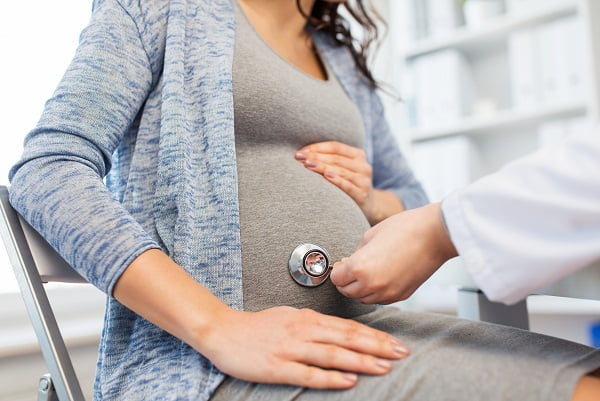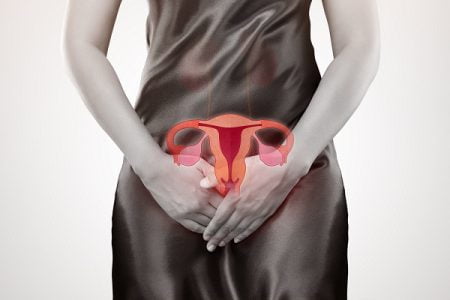Can You Get Pregnant If You Have Cervical Cancer?
- Updated on: Jun 27, 2024
- 4 min Read
- Published on Feb 14, 2019


Cervical cancer and pregnancy
Cervical cancer is very common among women with active sexual life. Doctors suggest that women with an approximate age of 26 should get vaccinated as a prior prevention method for cervical cancer. The maximum chance of a woman to get cervical cancer is through HPV infections. Although, HPV does not directly affect your pregnancy or your baby’s health but infectious genital warts can increase the problems during pregnancy or might also lead to the development of cancerous lesions. Read about cervical cancer vaccination.
Warts in the cervix, during pregnancy, grow faster possibly due to the extra vaginal discharge that provides the virus with the best living area i.e. a moist growing environment, hormonal changes, or weakness in the immune system. There are minor chances that the virus infects the baby during pregnancy. Hardly ever, but if HPV infects the baby, warts develop in his vocal cord and lead to a very serious (and rare) condition known as recurrent papillomatosis. Generally, warts do not pose any problem for the mother and the child.
Cervical cancer and getting pregnant: Can you get pregnant with cervical cancer?
Early stage cervical cancer or genital warts do not have any effect on pregnancy. A woman can get pregnant during cervical cancer and also can be treated for it. Screening methods or treatments for cervical cancer does not affect a women’s fertility, in general. Screening provides an assurance that how safe it is to get pregnant during cervical cancer.
If cervical cancer is diagnosed in later stages, it is difficult to treat it. About 3 to 5% of cervical cancer cases are diagnosed during pregnancy. Pap smear is performed before and during pregnancy to rule-out the chances of cervical cancer. Curing cervical cancer during pregnancy depends on two factors:
- The stage of cervical cancer in which it is detected
- How far the woman has crossed the pregnancy time
Is Cervical cancer treatable during pregnancy
If a young woman is surviving cervical cancer, her chances of getting pregnant will depend on the treatment that she is taking. If cervical cancer in pregnant women is detected in its early stages, the treatment is much easier. Sometimes, the treatment can be delayed post delivery depending upon the progress of the cancer. In some cases, pregnant women are diagnosed with “dysplasia” instead of cervical cancer but dysplasia also leads to the development of cancerous lesions.
In case of advanced stage (after Stage 3) cervical cancer during pregnancy, treatment options become more complex such as there might be chances of a need to terminate pregnancy (during early trimester). In cases, when a woman has entered her second or third trimester, there are possibilities to delay the treatment until the baby is delivered. In such cases, delivery will take place as early as possible ensuring the safety of the baby.
HPV and pregnancy: Can HPV affect pregnancy?
It is often seen that patients are concerned with worries such as can HPV prevent pregnancy or can HPV affect fertility, etc.
The HPV virus has no significant impact on the fertility of a woman. Pregnant women do not routinely get tested for HPV. The presence of HPV can increase the risk of developing precancerous or cancerous cells in the cervix during pregnancy. Fertility and the ability to carry the baby can be affected if HPV infection is high. After the development of genital warts in pregnancy, Pap smear test and HPV test are conducted for the diagnosis and confirmation of cervical cancer.
HPV is very common amongst women and it can become prominent during pregnancy. It was estimated that merely about 10 to 12 percent of the women suffer from chronic infection (caused by HPV).
There are no specific drugs for HPV infection that are recommended during pregnancy. Doctors generally prefer not to treat the genital warts during pregnancy as it is observed that these warts fade away altogether post birth of the child.
Can you have kids after cervical cancer?
Women often get worried about their pregnancy options after suffering from cervical cancer. In most of the cases, the ability of a woman to get pregnant after getting cervical cancer depends on what stage of the cancer is and what type of treatment is provided to her. In mostly all cases, early stage treatments do not affect the fertility of a woman but when precancerous cells are treated, fertility of a woman can be affected.
Can You Die From Cervical Cancer?
Recently, researchers have found a new surgical technique for initial stage cervical cancer patients in which only the cancerous portion of the cervix is removed and the womb is preserved. This technique however does not work for all cases. The cervix also weakens when an area of cervix is removed through surgery. This leads to a condition known as cervical stenosis which prevents sperm and egg from meeting. If a larger part of the cervix is removed, it can lead to miscarriage in the second or early third trimester as the cervix can easily open without contractions.
In case of severe cervical cancer, radical hysterectomy and radiation treatments are used as a cure. Radiations during chemotherapy affect fertility. During cervical cancer treatment through radiation therapy, heavy rays are used to kill cancerous cells. This exposure to radiations damages the ovaries and destroys some or all of the eggs which results in premature menopause. Moreover, exposing the uterus to these radiations also increases the risk of miscarriage or lead to premature births due to scarring and reduced blood flow to the uterus.
During radical hysterectomy (surgery to remove the womb), if the cervical cancer has reached to a severe stage, the uterus (womb) which carries the child is removed. Then, there are no chances of the woman to get pregnant. In some cases, both the ovaries are also simultaneously removed and therefore no eggs will be further produced.
Cervical cancer pregnancy is therefore only possible during its initial stages. In very rare case of advance stage cancer, it becomes difficult treat the mother with cervical cancer at the expense of the baby.












